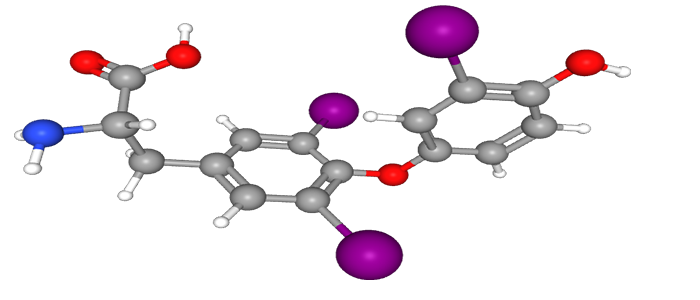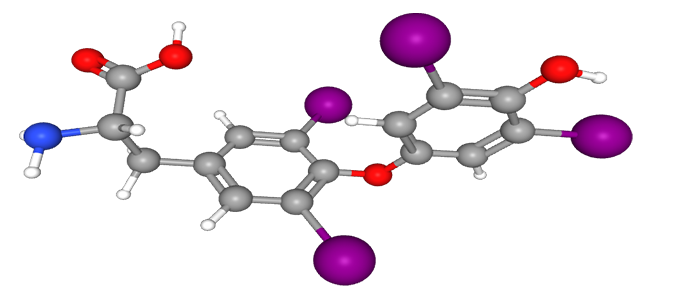Endocrine Disruption
|
The Hormones
- Androgens
- Corticoids
- Estrogens
- Progestins
- Thyroid
Androgens
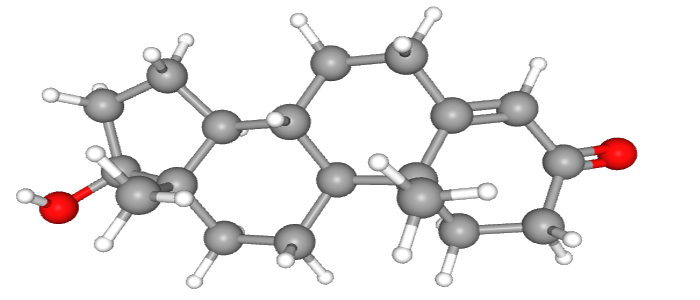 Say the word androgen and most people think male. Indeed, they are dubbed the male hormones mainly because males make and use more testosterone and other androgens than females. These steroid hormones confer masculinity by triggering and controlling body programs that govern male sexual development and physique. In females, androgens play more subtle roles. Say the word androgen and most people think male. Indeed, they are dubbed the male hormones mainly because males make and use more testosterone and other androgens than females. These steroid hormones confer masculinity by triggering and controlling body programs that govern male sexual development and physique. In females, androgens play more subtle roles.
CAPTION: Testosterone is a potent androgen.
CREDIT: ChemIDPlus, National Library of Medicine
Corticoids
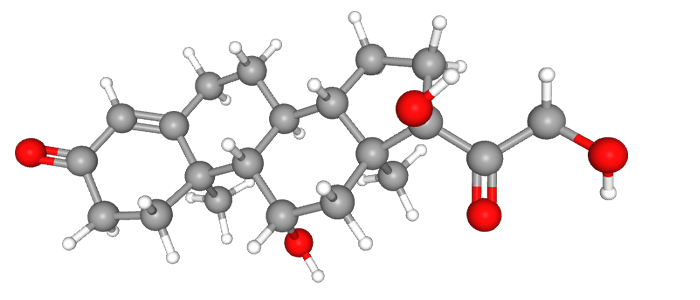 Corticoid hormones balance stress response, energy flow, body temperature, water balance, and other essential processes. Two groups, the glucocorticoids and the mineralocorticoids, chemically control some of the most basic actions necessary to protect, nourish, and maintain the body. The gender-neutral corticoids guide these life-sustaining functions in both males and females. Corticoid hormones balance stress response, energy flow, body temperature, water balance, and other essential processes. Two groups, the glucocorticoids and the mineralocorticoids, chemically control some of the most basic actions necessary to protect, nourish, and maintain the body. The gender-neutral corticoids guide these life-sustaining functions in both males and females.
CAPTION: Hydrocortisone, also called cortisol, is a glucocorticoid hormone. CREDIT: ChemIDPlus, National Library of Medicine
Estrogens
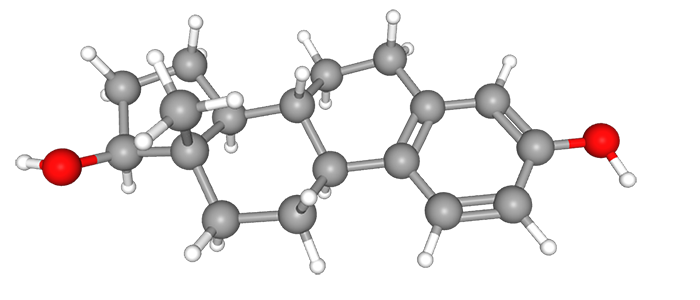 News about estrogens regularly appears in the media and is routinely talked about in daily conversations. Keen interest in the so-called female hormones thrives because of their connection to both health and disease. News about estrogens regularly appears in the media and is routinely talked about in daily conversations. Keen interest in the so-called female hormones thrives because of their connection to both health and disease.
Most animals depend on the versatile estrogens to influence growth, development, and behavior; regulate reproductive cycles; and affect many other body systems. The hormones, though, are more plentiful and play a larger role in females than in males. In women, estrogen levels vary through life, surging at adolescence, seesawing monthly in the reproductive years, and waning to low levels during menopause. Although indispensable, too much estrogen exposure is linked to some cancers. This little understood paradox between health and disease continues to spur public attention and scientific interest.
CAPTION: The most common vertebrate estrogen is 17-beta-estradiol.
CREDIT: ChemIDPlus, National Library of Medicine
Progestins
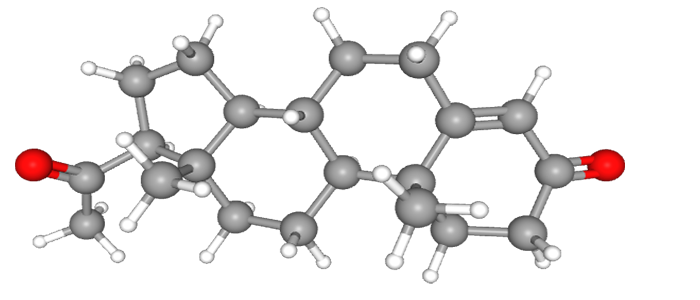 Progestin hormones prepare, sustain, and build. With them, pregnancy, some behaviors, and sex hormones endure. Indeed, progestins are nicknamed the pregnancy hormones because they prep for and maintain the body during pregnancy. Their essential role in egg and sperm maturation, sexual receptiveness, and estrogen production are lesser known. Not surprisingly, females make and use more progestins than males. Progestin hormones prepare, sustain, and build. With them, pregnancy, some behaviors, and sex hormones endure. Indeed, progestins are nicknamed the pregnancy hormones because they prep for and maintain the body during pregnancy. Their essential role in egg and sperm maturation, sexual receptiveness, and estrogen production are lesser known. Not surprisingly, females make and use more progestins than males.
CAPTION: Progesterone, the best known progestin hormone, is nicknamed the pregnancy hormone.
CREDIT: ChemIDPlus, National Library of Medicine
Thyroid
Thyroid hormones support nearly every body system. In humans and other backboned animals, the iodine-containing hormones guarantee proper development of the brain, skeleton, and organs. Yet, too much or too little derails the body's delicate balance causing goiter and other health troubles. These distinct regulators work alone or in cooperation with other hormones to generate energy, control cell oxygen use, and moderate many other life processes in both males and females.
CAPTION: The two most active thyroid hormones, triiodothyronine (T3) (left) and thyroxine (T4) (right), contain iodine atoms typical of the thyroid hormones.
CREDIT: ChemIDPlus, National Library of Medicine
|




